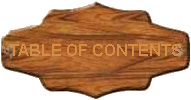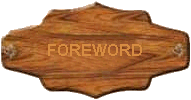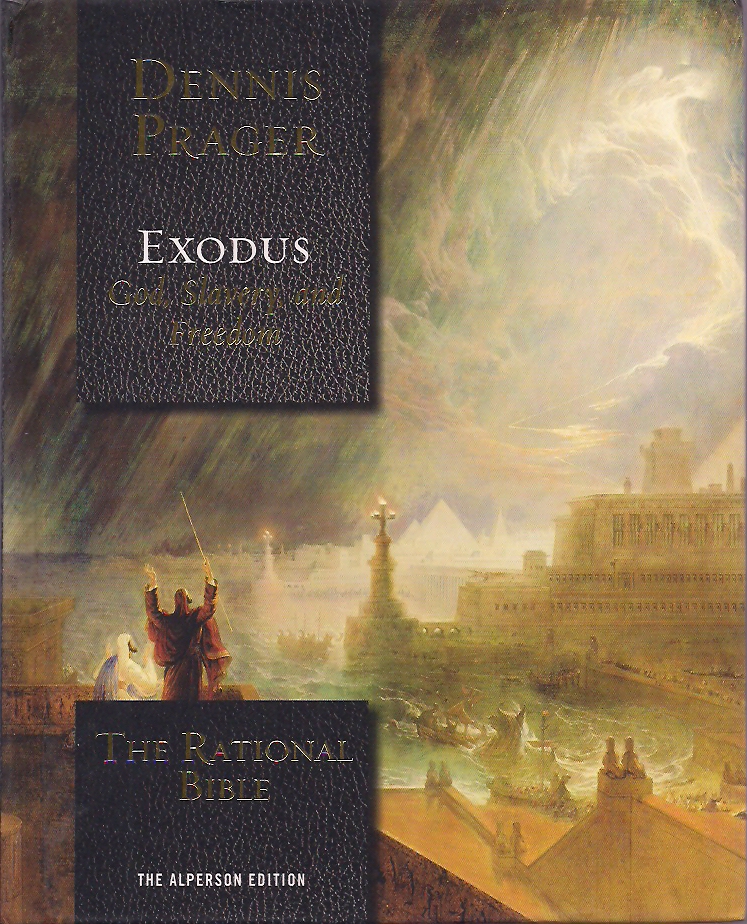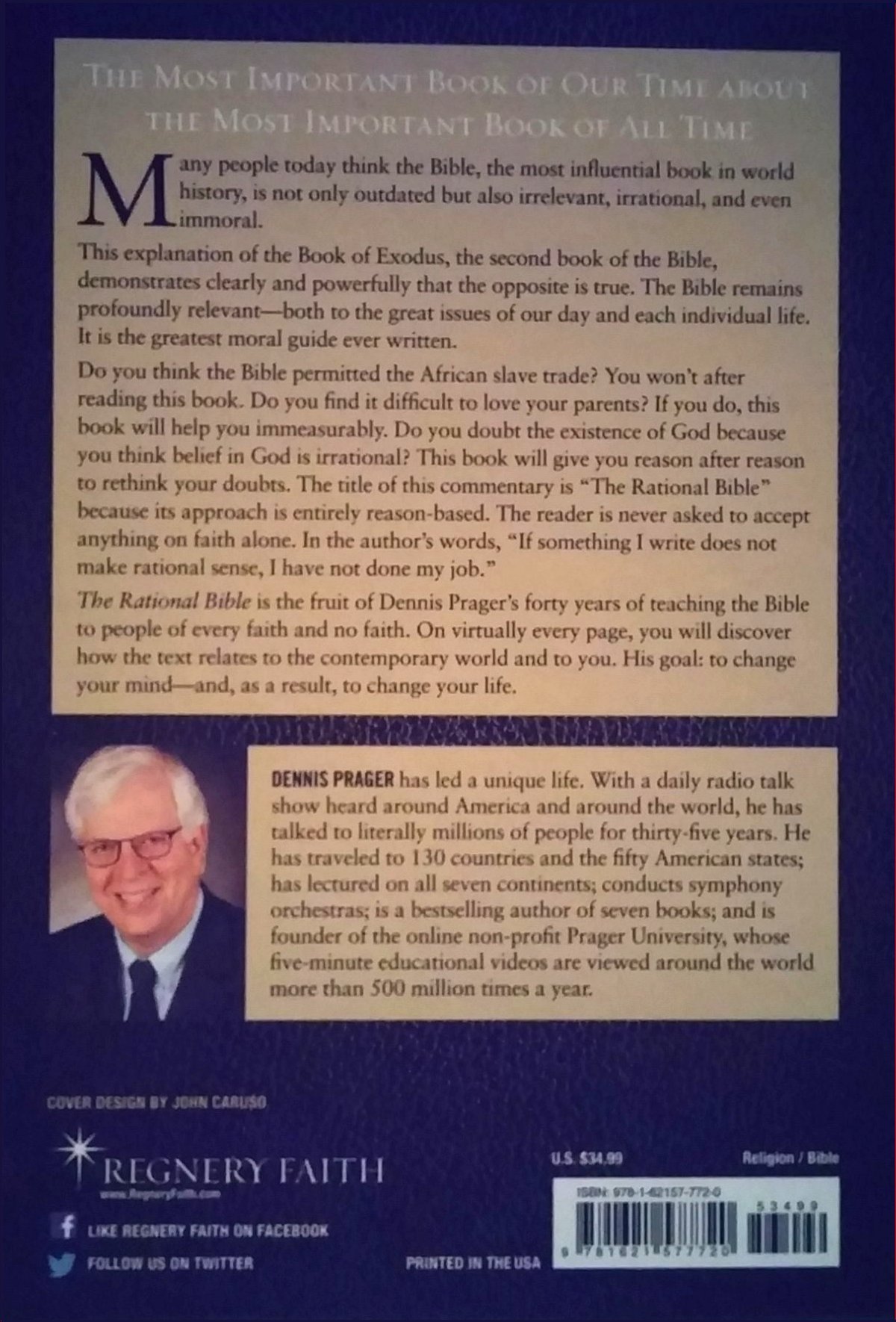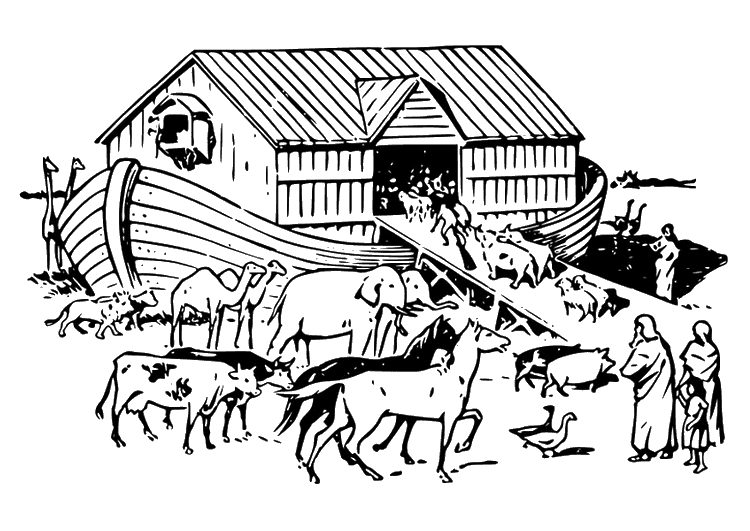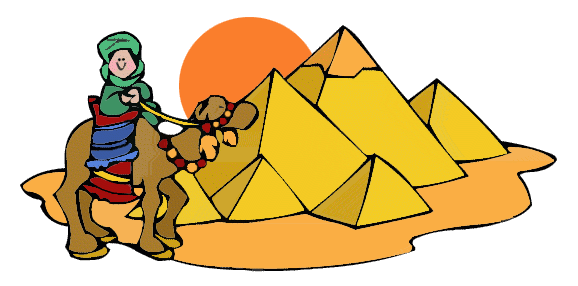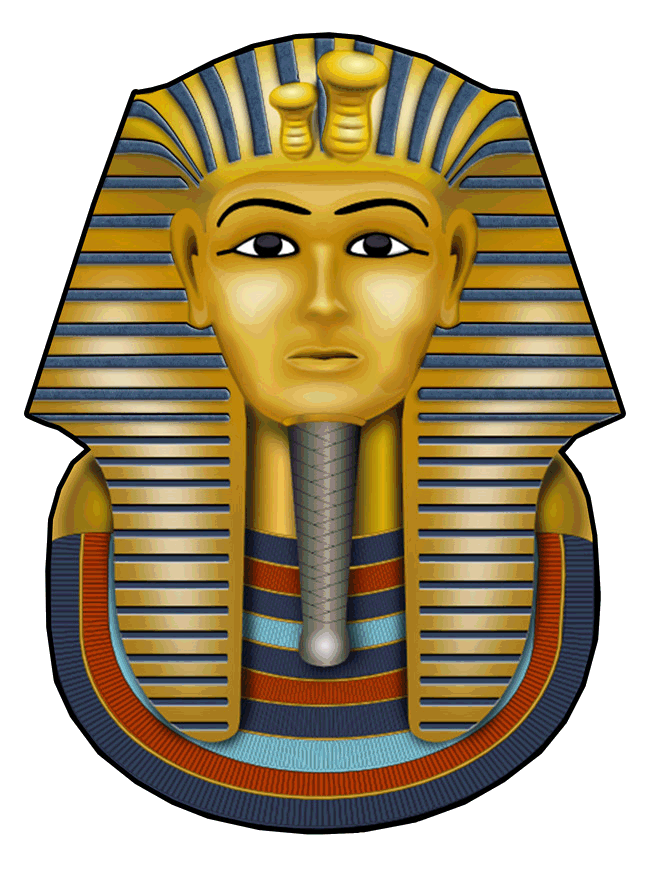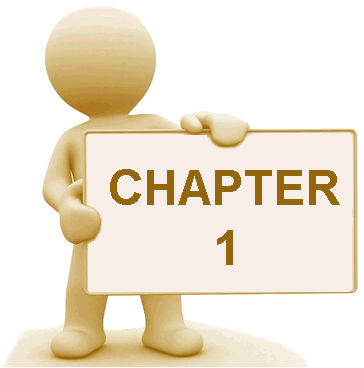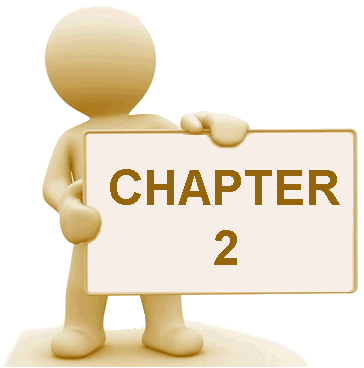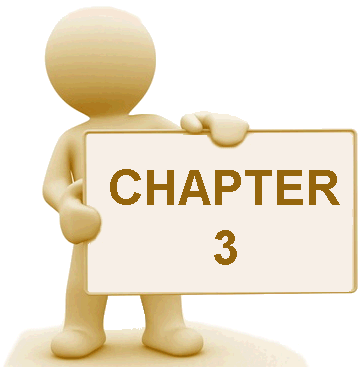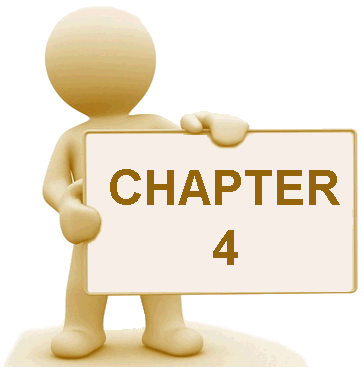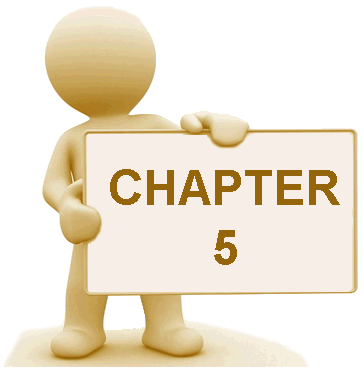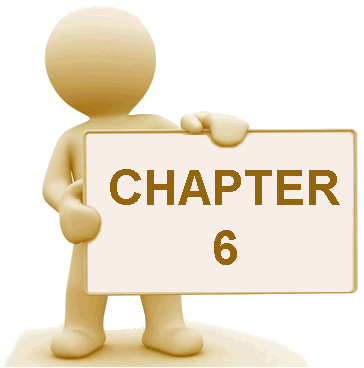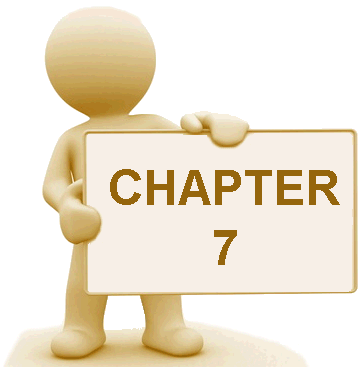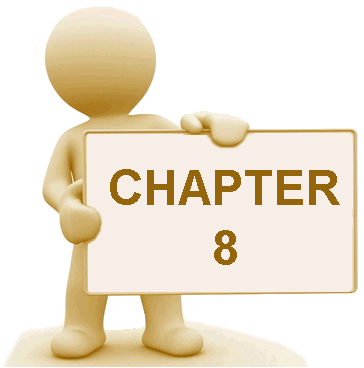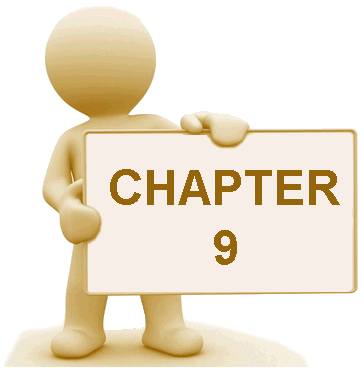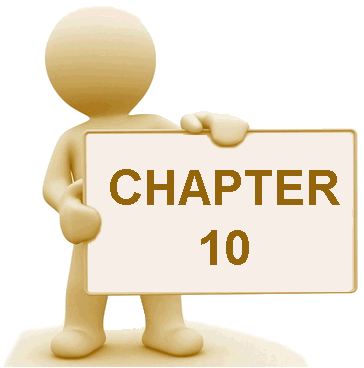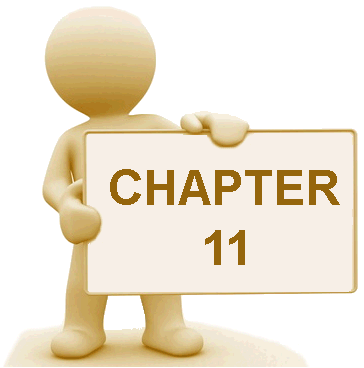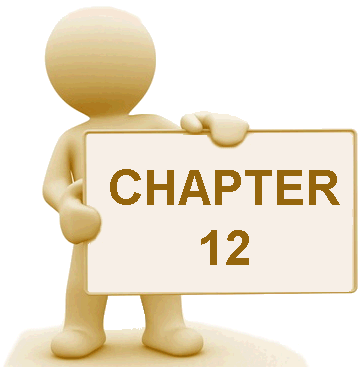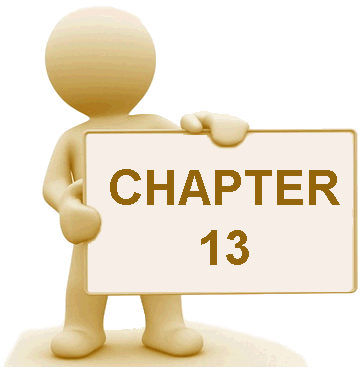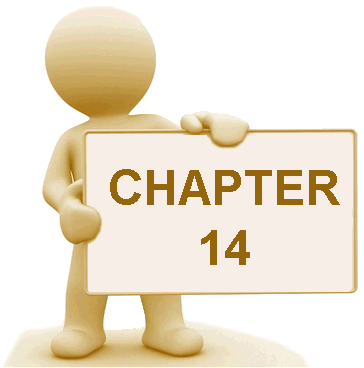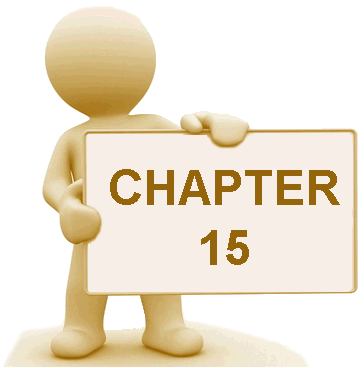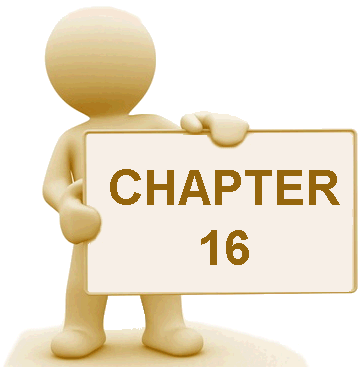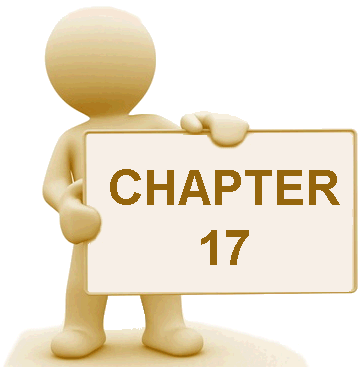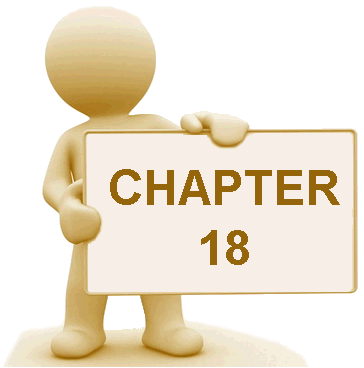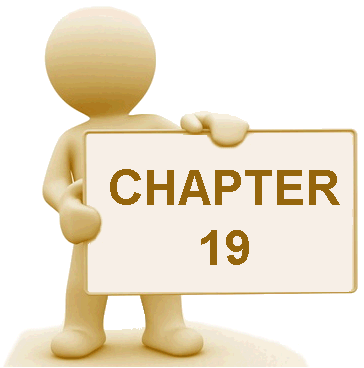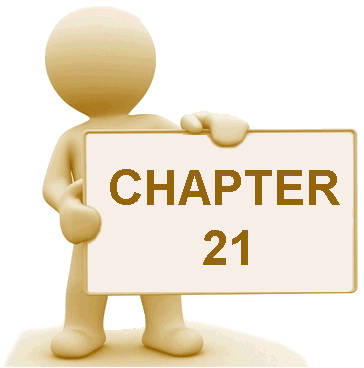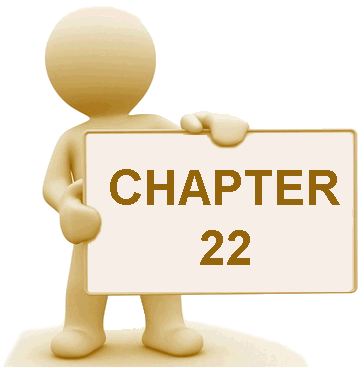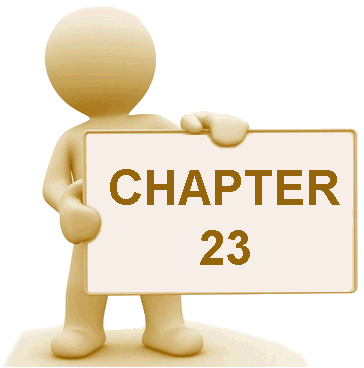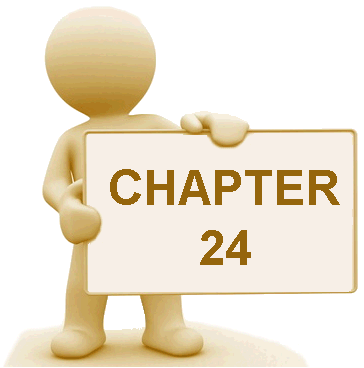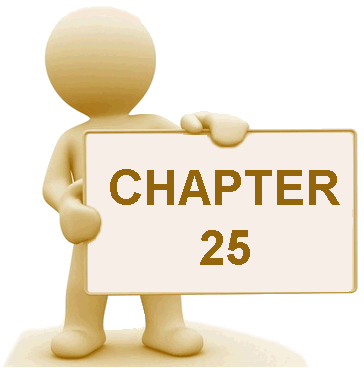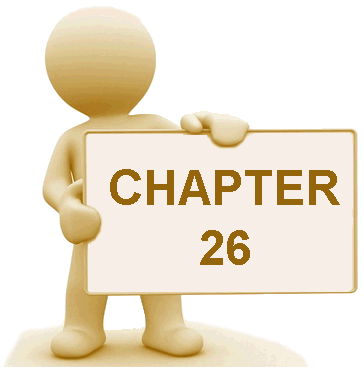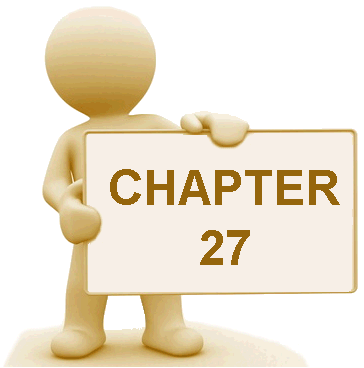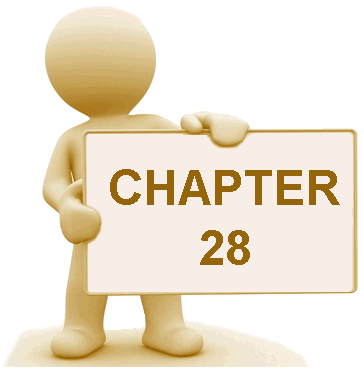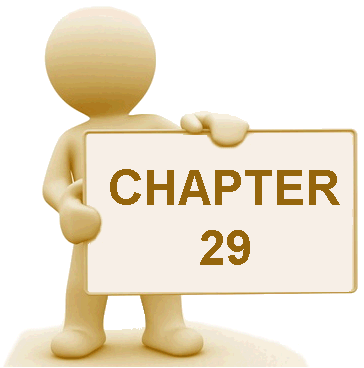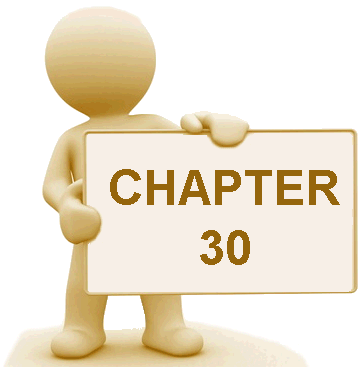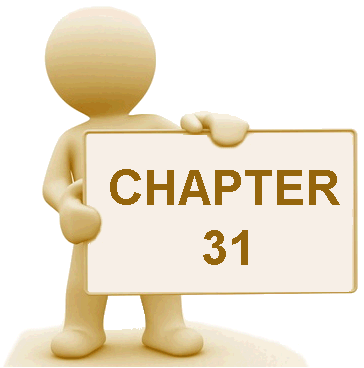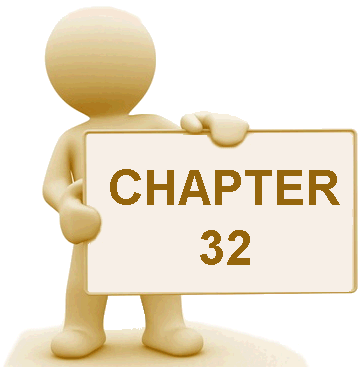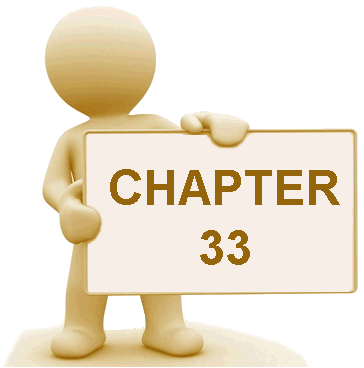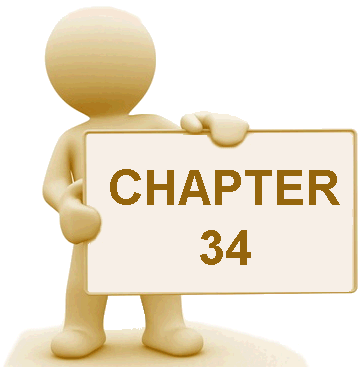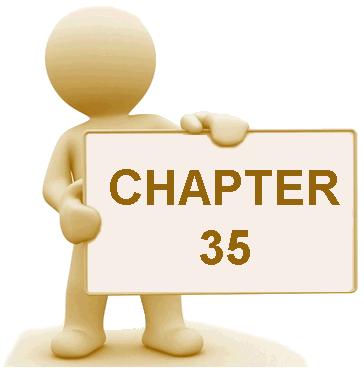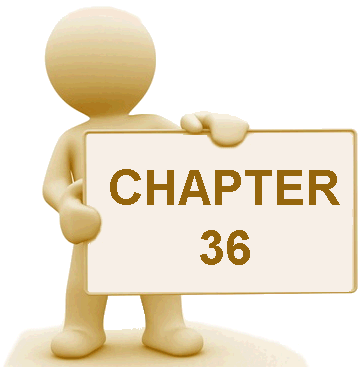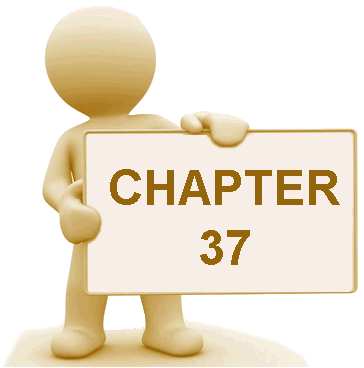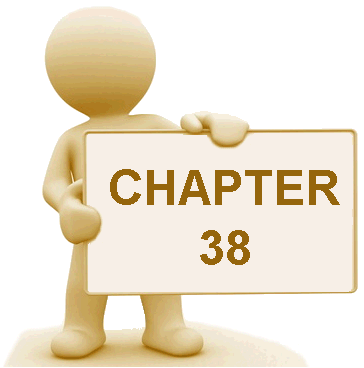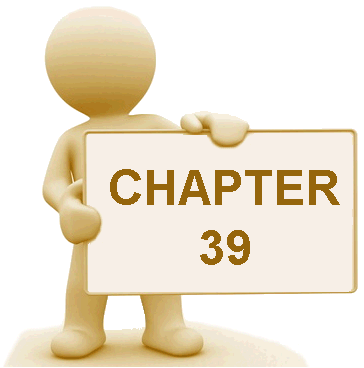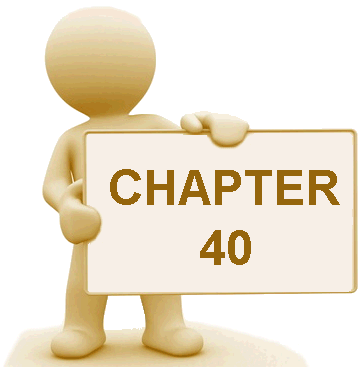 |
|
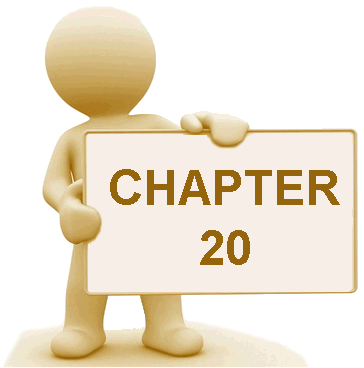
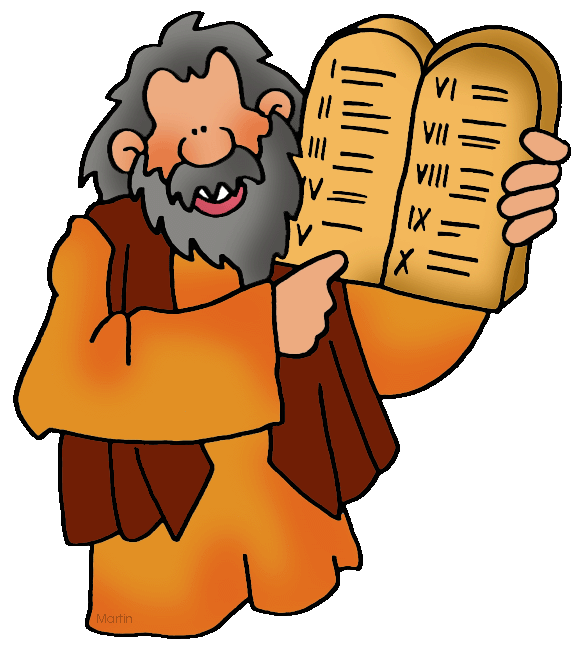
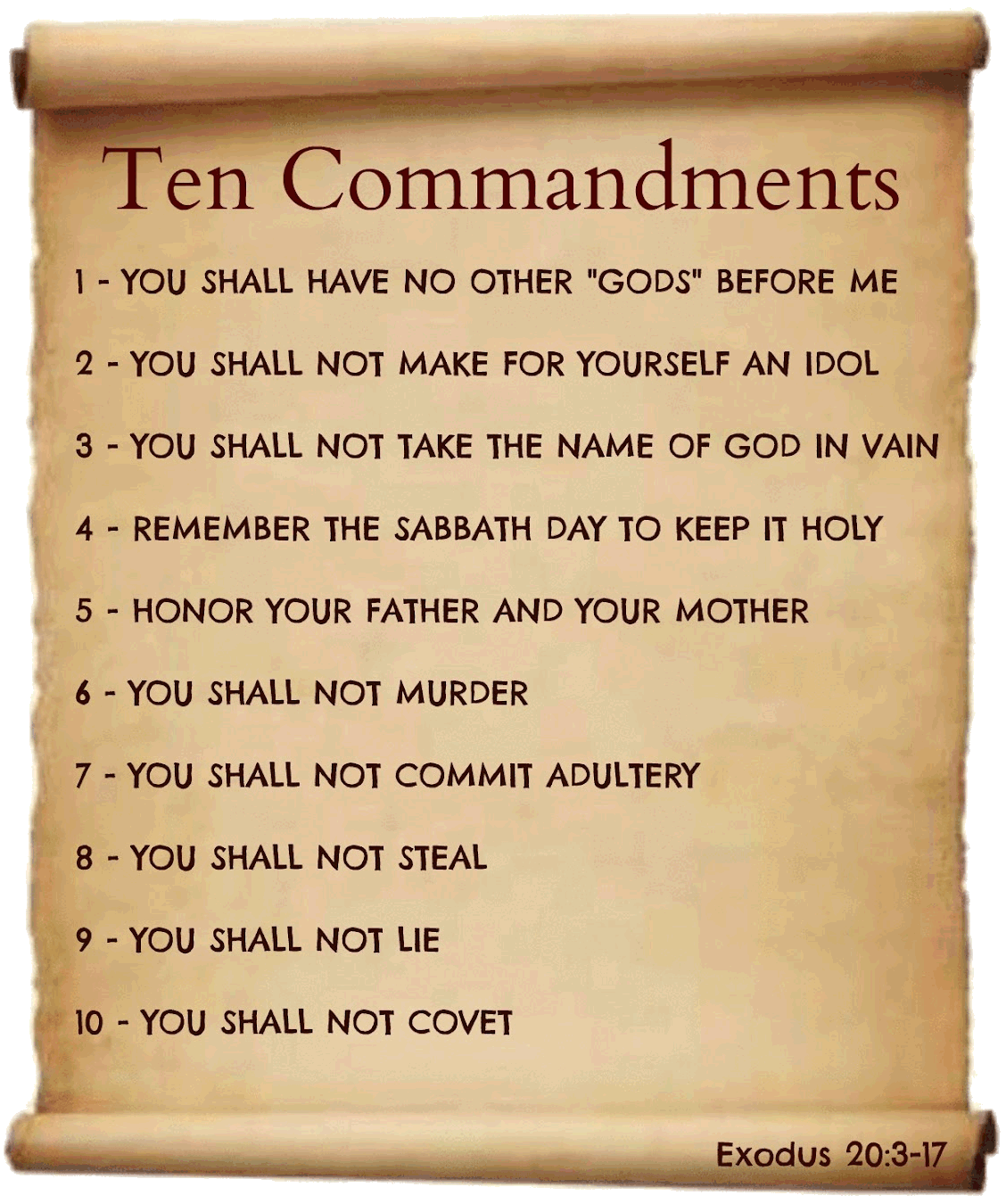
|
Exodus - Chapter 20 - 26 Verses
Top Of Page
God, Not Moses Or Anyone Else, Gave The Ten Commandments
The Ten Commandments
219 - 20:1 - - And God spoke all these words:
219 - The Torah describes the laws in this chapter not as the "Ten commandments," but as the "Ten Statements" (Aseret Hadevarim: Exodus 34:28).
In fact, the alternative English name of the Ten Commandments, "the Decalogue," means the "Ten Words" -- from the Greek words deca (ten) and logos (word).
The Ten Commandments Are Unique
219 - Nahum Sarna identifies at least four ways in which the Ten Commandments are unique, original, and unparalleled:
- The Ten Commandments are the first and only example of a convenantal relationship between a deity and an entire people.
- Unlike other ancient treaties between a ruler and his people, the Ten Commandments focus not only on the people's relationship with the ruler, but also on each individual's behavior toward every other individual.
- The Ten Commandments treat both religious and social obligations as expressions of divine will.
In doing so, the religious conscience is expanded to include matters of interpersonal morality, thereby ensuring a person who is unethical could not, and should not, be regarded as religious.
- Unlike other legal codes, the Ten Commandments are laws that are simple, absolute, and devoid of qualification.
The Ten Commandments Were Deliberately Not Given In The Land Of Israel
220 - God chose to give the Ten Commandments in the no-man's land of a desert rather than in the land of Israel. I would offer three reasons for this:
- First, the Ten Commandments are not just a one-nation guide to behavior, but applicable to all people.
- Second, by giving the Ten Commandments outside of Israel, God wanted the Israelites then and Jews forever to understand the Ten Commandments are binding on them not only when they are in their homeland, but everywhere they live.
- Third, God did not want to privilege any one Israelite tribe's territory as the site of revelation, which would have likely been the case had the Ten Commandments been given in the Land of Israel.
The Ten Commandments Constitute A Form Of Absolute Morality
220 - Because the Ten Commandments are given by God, they are absolute.
People can and should argue about how to apply any of these commandments in any given situation -- such as what constitutes a violation of the Sabbath, what constitutes disrespect for a parent, or when taking a human life is to be defined as murder.
But because they are decrrees from God, only those types of debates make sense, not debates about whether they are binding.
221 - The Ten Commandments therefore stand in direct opposition to all relativistic approaches to morality -- the notion that each individual or society determines what is right or wrong.
The Ten Commandments are not relative.
(The one exception is the Sabbath commandment, which one can deem as binding only on Jews.)
Four Defining Characteristics Of The Ten Commandments
Page 221
- They contain no abstract moral principles, such as "Be a good person."
Human beings need specific laws in order to do the right thing and be good people.
Most people, even those who are not good, think they are good, and might easily conclude, therefore, they don't need the Ten Commandments -- or any divine commandments, for that matter.
- Nearly all the Ten Commandments are formulated as prohibitions: "You shall not..."
(Page 222) - Only two commandments, the Fourth and Fifth, are explicitly positive, and these, too, have essential negative components.
This emphasis on prohibitions reflects an awareness that the first prerequisite for a stable, decent society is for people to desist from wrongful behaviors.
In the words of the famous rule for physicians: "First, do no harm."
A great deal of evil has been done by individuals who believe themselves preoccupied with doing good and by ideologies proclaiming good intentions -- hence the famous motto, "the road to hell is paved with good intentions."
We must first ask whether the good we intend will do harm.
Parents preoccupied with doing good things for their children while making few demands on them end up hurting them by spoiling them and producing ungrateful people (and ungrateful people are neither good or happy).
- (Page 222) - The Ten Commandments are formulated in terms of obligations, not rights.
While the Torah obviously recognizes fundamental basic human rights, given that each person is created "in God's image," it makes clear such rights will more likely be secured if people first feel morally obligated to others rather than first feel they have rights.
The most famous verse in the Torah, "Love your neighbor as yourself" (Leviticus 19:18), is written as a moral obligation to act lovingly toward your neighbor, not as a right ("You have the right to be loved by your neighbor").
- (Page 223) - Each one of the Ten Commandments is in the singular.
One would think the plural form would be used given that God is addressing many people.
But the singular is used throughout the Ten Commandments to emphasize the words of the Ten Commandments are directed to each person individually.
A good society is composed of individuals doing what is right.
A society in which too many parents, for example, are more concerned with their children's happiness, intelligence, success, or popularity than with their character will sooner or later fail.
223 - 20:2 - “I am the Lord your God, who brought you out of Egypt, out of the land of slavery.
223 - Because this verse does not command or prohibit any specific action, Christians enumerate the Ten Commandments slightly differently than Jews always have.
As noted above, the Torah's name for this document is the Ten Statements, not the Ten Commandments.
Consequently, technically speaking, a Jew would regard this verse as the First Statement, whereas Christians count the next verse, Exodus 20:3 as the First Commandment.
223 - There is no difference between Jews and Christians regarding the wording of the Ten Commandments.
224 - Therefore, as I understand it, this verse is concerned not with the question, "Is there a God?" but with the question, "Who is God?"
224 - (Two medieval Jewish thinkers, Hasdai ibn Crescas and Don Isaac Abarbanel) They argued that if you don't believe in God, you certainly won't believe God commands you to believe in Him.
Why God Mentions The Exodus At The Beginning Of The Ten Commandments
224 - This opening statement, that God freed the Israelites from Egyptian slavery, establishes God's "right" to demand observance of the commandments that follow.
225 - And yet, God asks nothing for Himself.
This fact perfectly encapsulates the essence of the Torah's values -- what God demands in the Ten Commandments in exchange for what He has done for Israel is (God-based) moral behavior.
Why God Didn't Introduce Himself As The Creator Of The World
225 - Wouldn't "I am the Lord your God who created the Heavens and the Earth" be more impressive than "I am the Lord your God who took you out of the land of Egypt..."?
225 - Three possible reasons occur to me as to why God chose the latter way:
- God indentified Himself to the Israelites in terms most relevant to them.
- That God is the Creator of the world is certainly awesome and inspiring.
But it doesn't necessarily mean He cares about His creations.
- (Page 226) - God identifies Himself as the Israelites' liberator in order to state His desire that men be free.
Why the Torah does not ban slavery outright -- though it places enormous limitations upon it -- is discussed in the chapters dealing with slavery (see, in particular, Exodus 21).
His great revelation to humanity at Sinai and in His preamble to the great moral code known as the Ten Commandments makes His antipathy to slavery and love of freedom incontrovertibly clear.
Millennia later, it was this understanding of God's will -- He wants us to be free -- that became the governing belief of the founders of the United States of America, the greatest experiment in human liberty ever devised.
Why Are The Words "House Of Bondage" Added To Describe Egypt?
226 - 20:2 (continuted) - The house of bondage:
226 - The Hebrew literally says "house of slaves" to describe Egypt.
226 - I would argue the reason is to prevent the Isrelites from ever romanticizing Egypt, which is precisely what they did (Exodus 16:3).
226 - People who live in liberty have a tendency to forget such things when the going gets rough.
227 - God doesn't want later generations to marvel at the glories of Egypt (such as the pyramids) without remembering those accomplishments were achieved on the tortured backs of slaves.
227 - God also wants the Israelites to forever remember their humble origin; they started out as slaves, on the lowest rung of human society.
This is to keep them humble despite any achievement they might eventually attain as a people.
But, more important, it is to make clear to the Israelites that whatever achievements they ultimately attain -- and the Jews have achieved as much or more than any other people and have had a unique influence on the course of human history -- such achievements are ultimately due to God, the Ten Commandments, and this Torah.
Essay: False Gods

227 - 20:3 - “You shall have no other gods before me.
227 - The commandment not only refers to "idols"; it says "other gods" (other gods being, by definition, false gods).
227 - And even when people think of false gods tht are not idols, they think of ancient deities such as gods of the sun and the moon, of rain and fertility, other nature gods, and chief gods such as the Roman Jupiter and the Greek Zeus.
227 - As a result, most people in modern times think of this commandment as essentially irrelevant to the modern age.
228 - Today we have as many false gods as the ancients did.
228 - The point of the Torah's monotheism is ther is only one god and only this God -- the Creator of the universe Who demands we keep these Ten Commandments -- is to be worshipped.
228 - One God means one human race. Only if we all have the same Creator, a Father in Heaven, are we all brothers and sisters.
228 - And one God means one moral standard for all people. You can't go to another god for another moral standard.
228 - When anything else is worshipped, it is a false god.
In other words, when anything is made an end in itself, rather than as a means to God and goodness (as defined, most especially, by the Ten Commandments), it is a false god.
228 - What are examples of false gods -- things people regard as ends in and of themselves rather than as a means to God and goodness?
228 - Many people respond by naming money. Money is not really a false god. Even people who live for money rarely claim money is worth living for, or that they live for it, let alone that it is the highest value in life.
228 - Therefore, in order for a thing or an idea to truly be a false god, people must not only make it an end in itself, they must believe it is a worthy and noble thing to live for.
228 - Genuine false gods are therefore often beautiful things people come to venerate as ends in and of themselves -- things such as education, art, and even love and religion.
228 - All of these things are noble when pursued in the service of God and goodness, but when removed from God and goodness, they can lead to evil.
Education
229 - One almost universally worshipped false god of the modern era has been education.
Vast numbers of people sincerely believe education makes people better.
Education, when divorced from the higher ends of God and goodness, has either had no moral impact or has actually made people worse.
229 - Many of the best-educated people in Germany supported Hitler and the Nazis.
229 - And at the time of this writing, universities are at the center of Israel-hatred in the Western world.
229 - Nearly every American university was founded to teach young people theology and other subjects.
Moral education was deemed the mosty important form of education, and knowledge of the Bible was assumed to be part of that moral curriculum.
By the early-to-mid twentieth century, education, first at universities, then at high schools and elementary schools, was divorced from God and the Bible, and a disproportionately high percentage of secular intellectuals adhered to immoral ideologies and intellectually foolish beliefs.
229 - Nowhere is the belief in education as the road to a moral society more apparent than in some of the later writings of the father of psychoanalysis, Sigmund Freud.
In 1927, Freud, an atheist who was deeply committed to moral behavior, published a critique of religion, The Future of an Illusion (the illusion being God and religion).
230 - Freud did not fear the breakdown of belief in God would have any moral implications among intellectuals: "Civilization has little to fear from educated people and brain-workers.
In them, the replacement of religious motives for civilized behavior by other secular motives, would proceed unobtrusively."
230 - As Dr. Freud was to witness within ten years of his statement, civilization has as much, if not more, to fear from educated people as from the uneducated.
Freud's fellow Austrian and German intellectuals showed no more moral insight or strength than any other group of Germans and Austrians.
230 - The moral failure of secular education and secular intellectuals in Germany is almost universally ignored.
Art
230 - Art can uplift the spirit, elevate the human being, and illuminate the human condition.
And it has done all that primarily during religious periods in Western history and/or by God-centered artists.
230 - For example, the man widely considered to be the greatest composer of music was Johann Sebastian Bach.
This is not a "Euro-centric" assessment; it is a view held by Japanese, Koreans, Chinese, and other non-Westerners just as much as it is by Westerners.
231 - In Bach's view, "The aim and final reason...of all music...should be none else but the Glory of God and the recreation of the mind.
231 - As belief in God and Christianity declined in Europe in the late nineteenth century -- and especially after World War I -- classical music deteriorated, as did the other arts.
231 - The "death of God" (pronounced by Friedrich Nietzsche in 1882) and the near-death of great art are related.
231 - "To God alone the Glory" are the words Bach wrote on every manuscript of every one of his more than two hundred cantatas.
231 - Much of post-modern, post-Christian, classical music and art came to celebrate the ugly and the meaningless.
More and more art has even celebrated the scatological (relating to or characterized by an interest in excrement and excretion):
231 - In 1987, a photograph by the American artist and photographer Andres Serrano showing a crucifix submerged in a jar of the artist's urine (titled Piss Christ) was an award-winning work of "art" shown in museums and galleries throughout America.
232 - In 2013, the Orange county Museum of Art in California placed a huge twenty-eight foot sculpture of a dog outside the museum, where it periodically "urinates" a yellow fluid onto a museum wall.
232 - In 2016, one of the most prestigious art museums in the world, the Guggenheim in New York, featured a pure gold, working, toilet bowl, which visitors to the museum were invited to use.
The name of the exhibit was "America" -- so one could literally relieve oneself on America.
232 - There were great works of art -- certainly great for their time -- prior to western civilization and its affirmation of God.
But those pre-Western artists -- such as the Greeks -- also believed in gods higher than themselves, if not in God.
232 - Although not all art needs to be God-centered -- and some great and/or beloved art, from Claude Monet's Water Lilies to Pablo Picasso's Guernica, have not been -- the overall trajectory of the art world since the bohemian, often anti-God, era of the nineteenth century to today has been a dramatic diminution in the quality and tranformative power of art.
In the West, when God dies, so does higher culture.
And in the many other countries where secularization has become the norm, there has been a similar decline in the arts.
233 - When art is not a vehicle to God and God-centered morality, it often becomes a morally worthless false god.
That explains how cruel human beings could love beautiful music and art.
233 - Hollywood director Stanley Kubrick vividly made this point in his classic 1971 film based on the Anthony Burgess novel, A Clockwork Orange.
In it, men rape and murder while classical music plays in the background.
233 - The Nazis forced death camp prisoners to play classical music while Jews were led to gas chambers.
Rudolf Hoess, the commandant of Auschwitz, the largest Nazi concentration and death camp, played classical music in his house after gassing up to 10,000 people, mostly Jews, each day.
233 - But the realization that art, when valued as an end in itself, does nothing to make a person good and may even enable bad people to think they are good -- because many people equate being cultured with being good -- was one of the most important, and depressing, realizations of my life.
233 - Aesthetic beauty in the service of God is magnificent and important. But not otherwise.
233 - As the early twentieth-century American rabbi Emil Hirsch put it: "To the Greeks, the beautiful was holy; to the Jews, the holy was beautiful."
Love
233 - Even love can become a false god. When morally directed, love is incomparably beautiful.
But it is not a moral guide in and of itself, any more than art or education.
233 - In the twentieth century, tens of millions of people put love of country (which can be a good thing) or of race (which can never be a good thing) or of an ideology above moral considerations, and evil resulted.
233 - Over the course of forty years, I have asked young people in America if they would first save their pet or a stranger if both were drowning.
A smaller and smaller minority have said they would save the stranger.
Why would the majority save their pet before a human being?
Because, they say, they love their pet and they don't love the stranger.
 Personal Note:
Billy Graham once said, "Whatever you love most, be it sports, pleasure, business or God, that is your God!" Personal Note:
Billy Graham once said, "Whatever you love most, be it sports, pleasure, business or God, that is your God!"
Whatever we love most will form the foundation upon which we make our decisions. (Russ Howell)
234 - That is one reason the Torah and other books of the Bible warn us against trusting our hearts (see, for example, Numbers 15:39).
234 - Love, like education and art, must be morally directed, or it, too, can be a false god.
234 - Nobel Prize-winning novelist Saul Bellow put it this way: "A man is only as good as what he loves."
234 - Joseph Telushkin makes the point that Bellow's words should be kept in mind when we hear of people who love vicious individuals:
The women who loved monsters such as Hitler, Stalin, Mao and, for that matter, mass murderers in prison, and myriad other men like them put love above morality.
234 - This commandment against false gods made the ethical revolution of the Bible and of the ten Commandments -- what is known as ethical monthesism -- possible.
Worship the God of the Ten Commandments and you will make a good world.
Worship anything else -- no matter how noble-sounding -- and you can too easily end up with evil.
Reason
234 - Reason, too, can become a false god.
234 - Many people believe reason, without faith, is all we need to be moral and to make a moral world.
In the words of the prominent American secular humanist and Yale professor of philosophy Brand Blandshard: "Rationality, or the attempt at it, takes the place of faith...Take reason seriously...Let it shape belief and conduct freely. It will shape them aright if anything can."
235 - Blandshard was wrong. The belief that reason automatically leads to moral behavior is itself unreasonable -- because reason is only a tool.
Once you know what end you wish to achieve, reason becomes indispensable.
If you want to build hospitals, you need reason; and if you want to build concentraion camps, you need reason.
235 - But reason doesn't tell you for what ends you should be aiming.
If you want to live completely for yourself, reason will help you do that.
If you want to live a life of kindness to others, reason will help you do that.
But reason doesn't tell you whether to be kind or to be self-centered.
Reason just as easily argues for immoral actions as it does for moral actions.
235 - It may be argued the only people in Nazi Germany who acted morally acted against reason.
235 - Not only does reason alone fail the morality test; it fails in determining a right response to almost every question involving values.
235 - For example, it is rational to have children? Yes and no. Reason argues both ways.
236 - Reason is exactly like a map. No map shows where you should go; only how to get there.
So, too, reason tells you how to get to the place you want to go.
But, whether you want to use reason to get to a moral place, or even know what a moral place is, is determined by your values.
236 - Nevertheless, it must be stressed that reason is a glory of the human mind.
236 - If you put reason first, you need God; and if you put God first, you need reason.
Nothing guarantees goodness, but that combination offers the best hope for a moral world.
Relgion And Faith
236 - Even religion and faith can be false gods when they hold that something other than goodness is God's primary demand.
236 - Neither faith nor ritual observance must be an end in and of itself; both must be a means of making us better people by living according to God's moral will.
236 - The danger of religious false gods resides in every religion, even the most ethically demanding ones.
236 - In Judaism, there is the danger that preoccupation with ritual law (the "Laws between Man and God") can overshadow the Torah's and the rest of the Hebvrew Bible's demands of moral behavior above all.
237 - The Ten Commandments are all about moral behavior.
237 - In Christianity, there is also a danger. It is not posed by ritual law becoming more important than moral behavior, but by faith becoming more important than moral behavior.
In the New Testament, James warns "Faith without works is dead" (James 2:20).
237 - But for much of Christian history, James's view did not prevail.
It was a dangerous overemphasis on faith that allowed medieval Christian Crusaders to murder entire Jewish communities in Germany on their way to the Holy Land.
Their rationale for doing so was the Jews refused to accept Christian belief, and in the Crusaders' minds should therefore convert or be killed.
To the Crusaders, right faith, not right conduct, was what mattered.
237 - Martin Luther, the father of the Protestant Reformation, broke with the Catholic Church on many issues.
But on the issue of faith Luther was even more extreme, insisting faith was incomparably more important than morality.
As Luther expressed it: "Be a sinner and sin vigorously, but even more vigorously believe and delight in Christ who is victor over sin, death and the world...
It is sufficient that we recognize through the wealth of God's glory the lamb who bears the sin of the world; from this, sin does not sever us, even if thousands, thousands of times in one day we should fornicate or murder."
237 - It is not surprising Luther even held the New Testament Book of James in contempt.
He described it as "mere straw" and without merit." Why? Because it attributes "righteousness to works."
Nor is it surprising Hitler and the Nazis idolized Luther because of the anti-Semetic sentiments that characterized his final years -- a hatred emanating entirely from his placing faith above morality.
237 - Nevertheless, Luther made something much better than himself.
What he helped to create -- Protestant Christianity -- ultimately became a gift to mankind.
Among their other moral achievements, Protestants led the modern world's abolition of slavery, and they created the United States of America.
One might say Protestants created much of the modern world.
237 - In Islam, both dangers exist, since both faith and ritual can overwhelm the moral.
And for much of Islamic history they have. One reason is the Quran has no prophets analogous to those of the Hebrew Bible repeatedly berating Muslims for unethical behavior.
238 - Another is the Quran's division of humanity between believers (Muslims) and non-believers (non-Muslims and non-monotheists), rather than between good and evil.
Money
238 - As already noted, while there have always been people who live for acquiring money and material items, money is not a false god because -- unlike art, education, reason, religion, and faith -- almost no one, even among those who do live for money, argues money is the highest good.
So, while it may function as a god, it is not believed in as a god.
238 - This commandment against other gods reflects one of the most important and pervasive themes in the Torah: the obliteration of false gods.
It is so important that the Talmud states, with only a little exaggeration, "Whoever denies idolatry is considered to have fulfilled the whole Torah."
238 - This is why the seven basic laws Judaism traditionally has deemed obligatory on all people (The Seven Noahide Laws) do not obligate people to worship God. They demand the denial of all other gods.

238 - 20:4 - “You shall not make for yourself an image in the form of anything in heaven above or on the earth beneath or in the waters below.
238 - The primary purpose of this commandment is to prohibit images intended to be representtions of God.
By forbidding the making of images of God, the Ten Commandments prevents people from thinking of God as having a physical form.
238 - The invisibility and incorporeality (no bodily form) of God are essential characteristics of the God of the Torah.
If God were a physical being, He would be part of nature, not above and beyond it.
239 - And if God were material, there would be no immaterial reality
That, in turn, would mean there could not be an immaterial part of the human being -- that is, the human soul.
And if the human being has no soul, humans are merely material beings, not intrinsically more valuable than a pebble.
Finally, if there is no soul, there is no afterlife.
239 - This commandment relates to the previous one in that both can be understood as warnings against the potential dangers of art -- art as a false god and using art to render God physical.
240 - According to Rabbi Gunther Plaut, prayer assumed the place of eminence denied to the visual arts.
As he put it, because visual depictions of God were viewed as idolatrous, Jews developed beautiful ways of addressing God instead of beautiful ways of portraying God.
240 - Of course, Christianity later held that God appeared in human form.
From a Jewish perspective, this compromised the doctrine of an incorporeal God; but this unquestionably enabled many people to more easily relate to the divine.
240 - And by doing so, Christianity played a seminal role in bringing knowledge of the Torah and God to the world.
240 - This commandment relates only to the visual arts. The Torah has no analogous limitation on music.
240 - The Torah is far more suspicious of the eye than of the ear, and rightly so: People are often led to sin when something glittering catches their eye or when they are seduced by someone who is irresistibly attractive to the eye.
The eye has the greatest power to lead us astray (Numbers 15:39).
241 - 20:5 - You shall not bow down to them or worship them; for I, the Lord your God, am a jealous God, punishing the children for the sin of the parents to the third and fourth generation of those who hate me,
Does God Really Get "Jealous"?
241 - 20:5 (continued) - for I, the Lord your God, am a jealous God...
240 - This statement is fodder for those who wish to mock the Bible.
They ask: How impressive is a God Who is jealous?
240 - A first response is that God, of necessity, must speak in terms understandable to human beings.
The moment God speak to human beings, He is, in effect, compromising His godliness.
If God spoke pure "God-talk," we humans would presumably understand nothing.
The notion of God being a "jealous God" is a powerful message delivered in human terms.
240 - And what is this powerful message: God's "jealousy" is a statement of His love.
240 - God wants His people to be faithful to Him.
God, therefore, likens His reaction to Israelite infidelity to that of a spouse whose husband or wife is unfaithful.
241 - God is speaking in terms we can emotionally relate to, and He is humbling Himself in order to describe as powerfully and humanly possible how much He loves His people.
241 - And, or course, God knows the evils that ensue when people abandon Him and worship false gods.
Does God Punish The Children Of Bad People? - Part I
242 - 20:5 (continued) - ...punishing the children for the sin of the parents to the third and fourth generation of those who hate me,
242 - 20.5 (continued) - Book: visiting the guilt of the parents upon the children, upon the third and upon the fourth generations of those who reject Me,
242 - This statement is often understood to mean God will punish the children, grandchildren, and great-grandchildren of those who "hate" God (the word translated above as "reject" literally means "hate").
242 - It is true that one meaning of the Hebrew verb po-ked is "visit."
But I believe the most accurate translation in this context is "take account of," which is how the verb is often used in the Bible.
See, for example, Exodus 3:16, I Samuel 17:18, and other biblical verses where the meaning is not "visit," but "take account of," and where the word has nothing to do with punishment.
242 - It is therefore very unlikely, from a moral perspective (and the Ten Commandments form, after all, a moral document) the intent of the verse is God punishes the decent children and grandchildren of grievous sinners.
242 - First, the Torah has already established God as just.
242 - Second, if the verse really meant to say, God punishes four generations of offspring for the sins of their ancestors, it would not only be unjust, it would be utterly counterproductive.
It would be announcing that no matter how good a person you become, no matter how different a person you are from your God-hating father or grandfather, you will still be punished.
And that alone would make someone hate God. Legitimately.
243 - Third, the Torah itself expressly bans punishing children for the sins of their parents:
"Parents shall not be put to death for children, nor children be put to death for parents: a person shall be put to death only for his own crime." (Deuteronomy 24:16).
243 - And the Prophet Ezekiel announced: "The one who sins is the one who will die.
The child will not share the guilt of the parent, nor will the parent share the guilt of the child.
The righteousness of the righteous will be credited to them, and the wickedness of the wicked will be charged against them" (Ezekiel 18:20).
243 - The Torah may be warning parents that if they are really bad and seek to undermine ethical monotheism, the chances are their children will suffer for what they have done -- both because children suffer when their parents are bad people, and because they are more likely to follow in their parents' footsteps.
243 - The worst mass shooting in American history as of this writing -- leaving fifty-eight people at an outdoor concert in Las Vegas dead and over five hundred injured -- was committed by a man whose father was a lifelong criminal and on the FBI's "Ten Most wanted Fugitives List."
243 - Fathers need to think about how they act. Their actions have enormous impact on their children.
Does God Punish The Children Of Bad People? - Part II
243 - 20:6 - but showing love to a thousand generations of those who love me and keep my commandments.
244 - But that is as morally impossible as the first part.
Does it mean that no matter how badly one behaves, he is shown kindness if his great-great-great-great-grandfather obeyed God? Of course not.
244 - In this case, God want to contrast His desire to reward good with His need to punish bad.
244 - Regarding the words, "of those who love Me," love of God, like hatred of God, refers not to feelings but to actions.

244 - 20:7 - “You shall not misuse the name of the Lord your God, for the Lord will not hold anyone guiltless who misuses his name.
244 - Another translation: "Thou shall not take the name of the Lord thy God in vain; for the Lord will not hold him guiltless that taketh His name in vain."
244 - So, what, then, does this commandment prohibit?
Essay: The Worst Sin Is Committing Evil In God's Name
245 - Is there such a thing as the worst sin? Apparently, there is. And this is it.
245 - How do we know? Because it is the only one of the Ten Commandments whose violation God says He will not forgive -- "the Lord will not hold him guiltless" (literally, "God will not cleanse" the one who violates this commandment).
245 - Why, of all sins, would a moral and just God say the only person He will not forgive is the one who takes His name in vain?
245 - Is murder potentially forgivable, but saying, "Oh God, did I have a tough day today" not forgivable? Obviously, this cannot be.
245 - For one thing, the word "God" is not God's name. So, saying something like "God, did I have a tough day today" does not violate this commandment.
245 - "God" is God's title. But God's name is YHVH (we do not know exactly how it is pronounced, and Jews refrain from pronouncing it).
It is this name (in the Hebrew original) we are forbidden to say in vain.
245 - The Hebrew verb in the commandment, tisa, means "carry."
The commandment therefore reads, "Do not carry God's name in vain."
245 - And who carries God's name in vain?
Any person who claims to be acting in God's name while doing the opposite of what God wants -- evil.
245 - Obvious modern examples would include Islamist terrorists who shout, Allahu Akbar ("God Is the Greatest") when they murder innocent people; or a priest or any other clergy who, utilizing the respect engendered by his clerical status, molests a child.
There is little question Islamist terrorists and molesting clergy have both played a role in the rise of atheism in our time.
246 - When any person commits evil, it reflects badly on the person.
But when a person commits evil in God's name, it reflects badly on God as well.
When associated with evil, God and ethical monotheism are thoroughly discredited.
And that is unforgivable, as it dramatically reduces the chances of creating a good world.
246 - No atheist activist is nearly as effective in alienating people from God and religion as are evil "religious" people.
246 - As noted, the Hebrew word y'nakeh ("hold guiltless") literally means "cleanse."
Essentially God is saying if anyone dirties God's name, God will never cleanse that person's name.

246 - 20:8 - “Remember the Sabbath day by keeping it holy.
246 - More likely, however, "Remember" means "Never forget to" keep the Sabbath day.
246 - The careful reader will note this commandment does not say, "Remember the sabbath day to rest."
While work is prohibited on Shabbat, our primary aim on the Shabbat should not be to rest. It should be to make it holy.
247 - Holy work is permitted, even though it is still work.
Essay: Why The Sabbath Commandment Is Unique
247 - The Shabbat Commandment is unique for at least three reasons, all of which underscore how important it is.
- First, it is one of only two of the Ten Commandments that ordain positive action.
Other than honoring one's parents and the Shabbat, all the commandments are stated in the negative ("You shall not...").
- Second, and even more remarkably, it is the only ritual commandment in the Ten Commandments.
This almost surely means the Shabbat is the most important ritual in the Torah and therefore in the Jewish religion.
The Christian world is thus far the only non-Jewish civilization to have adopted the Ten Commandments, and societies that did so benefited immeasurably.
Americans widely observed the Sabbath (on Sunday) until the radical secularization of America that began after World War II.
- The third reason the Shabbat Commandment is unique is it is the only one of the Ten Commandments for which a reason is given.
(Page 249) - That reason is to affirm each week that God created the world, and just as He ceased from work on the Seventh Day, so do we.
When Moses restates the Ten Commandments in the book of Deuteronomy, he provides a specifically Jewish reason for the Shabbat: The Israelites are to observe it because God released them from slavery in Egypt, and free people, unlike slaves, can choose not to work one day a week.
Work Is Noble
249 - 20:9 - Six days you shall labor and do all your work,
247 - There are those who take this as an obligation to work six days a week.
Others regard it as a statement that one should do all one's work six days of the week so as to be able to desist from work on Shabbat.
247 - The Torah values labor. In the Torah, there are no negative associations with either labor or money.
Like everything else, work and money can be directed toward noble or ignoble ends.
But the Torah wants us to observe a day without work or monetary concerns. God matters, too.
249 - 20:10 - but the seventh day is a sabbath to the Lord your God. On it you shall not do any work, neither you, nor your son or daughter, nor your male or female servant, nor your animals, nor any foreigner residing in your towns.
247 - Man is not a beast of burden, and the Sabbath is not for the purpose of enhancing the efficiency of his work.
247 - The Seventh Day is the purpose and the culmination of the rest of the week, so much so that in Hebrew until this day, the days of the week are named in reference to their proximity to the Shabbat.
Sunday is known as yom rishon, the "first day" (toward the Sabbath), Monday is yom sheni, the "second day" (toward the sabbath), etc.
249 - 20:10 (continued) - On it you shall not do any work, neither you, nor your son or daughter, nor your male or female servant, nor your animals, nor any foreigner residing in your towns.
250 - Only free people can take a day off from work every week.
Therefore, from the Torah's perspective, a person who works seven days a week is a slave, even if he does so voluntarily.
And if he earns a great deal of money by working seven days a week, he would then simply be deemed a wealthy slave.
250 - The Sabbath is a time to reflect on the meaning of the work we did during the other six days.
In this sense, Shabbat functions as a monastery, providing a weekly retreat from the world.
Slaves, Animals, And Strangers Must Also Have A Sabbath
249 - 20:10 (continued) - neither you, nor your son or daughter, nor your male or female servant, nor your animals, nor any foreigner residing in your towns.
250 - This is one of the least quoted, yet most ethically revolutionary, commandments in history.
The Ten Commandments became the first and, as far as is known, the only legal code to grant slaves a weekly day of rest.
251 - And by asserting a slave has fundamental human rights, the Torah began the arduous task of teaching people that slaves, too, are human beings.
251 - In the ancient world, and much of the world until today, the stranger has been regarded as outside the protection of the law.
251 - In these three ways, then, it is inaccurate to describe the Shabbat commandment as only "ritual." It is profoundly and uniquely moral.
The Sabbath: The Ritual That Affirms The Creator
251 - 20:11 - For in six days the Lord made the heavens and the earth, the sea, and all that is in them, but he rested on the seventh day. Therefore the Lord blessed the Sabbath day and made it holy.
251 - Sarna makes the important point that the division of time into seven days is not rooted in the natural; it is rooted in the supernatural, in God's creation of the world.
The day corresponds to one complete rotation of the earth on its axis, and the month corresponds to one cycle of the moon's phases, but the week is completely disassociated from the movement of the celestial bodies.
It is unnatural and arbitrary measurement of time.
251 - Therefore, by observing the Shabbat every seven days, one is worshipping the Creator of nature, not nature -- affirming the existence of a God Who is above nature and Who created it.
251 - There is no other ritual or ethical law in the Bible whose purpose is to affirm God as te Creator of the world.
"In the beginning, God created the heavens and the earth," is arguably the most important verse in the Bible.
The entire Bible rests on that claim. Life having ultimate meaning rests on it.
252 - If there is no Creator, there is no design and no purpose.
All is random and ultimately meaningless, including right and wrong.
252 - We affirm the Creator by not working on the Seventh Day.
For that reason alone, our increasingly godless world needs people who will observe the sabbath -- and invite others to celebrate it with them.
The Personal Impact Of The Sabbath
252 - When a person takes off from work one day every week to keep the Sabbath, that day almost inevitably becomes a day spent with people -- which means family and/or friends.
253 - In my parents' home, Shabbat was more or less the only time I engaged in protracted (lasting for a long time or longer than expected) conversation with my parents.
253 - Shabbat has similar positive effects on marriages. Ask anyone married to a workaholic.
The Uniqueness OF The Commandment To Honor Our Parents

253 - 20:12 - “Honor your father and your mother, so that you may live long in the land the Lord your God is giving you.
253 - This is the first of the Ten Commandments addressing only human-to-human relations.
It is listed among the first five, immediately following the commandment to observe the Sabbath.
Both of these commandments serve as a bridge between relating to God and relating to people.
253 - As for parents, they are, along with God, our co-creators (biologically and non-biologically) and honoring parents is a building block of civilization; societies in which parents are honored will long survive.
253 - There is another way in which this commandment is a bridge between God and man.
If a child does not honor parental authority, he is less likely to honor divine authority (and the converse is also true).
There is a hierarchy in life without which moral order is unlikely: God, parent, child.
254 - The unique importance of this commandment is further underscored by the fact there is no other commandment in the Torah -- not just in the Ten Commandments -- demanding we honor someone or something.
Essay: We Are Not Commanded To Love Our Parents
254 - The Torah commands us to love God, to love our neighbor, and to love the stranger who dwells among us.
But, in a particularly compelling example of the Torah's psychological sophistication, it does not command us to love our parents.
254 - Those who already love their parents don't need to be commanded to do so, while those who do not love their parents could not be commanded to do the impossible; the Torah understands how often child-parent relations are emotionally troubled.
254 - It is more important to honor parents than to love them.
255 - The moral success of a society does not depend on children loving parents; it does depend on children honoring their parents.
255 - Moreover, the Torah does not command us to always obey our parents, but to honor them.
The distinction between honor and obedience is highlighted in a later Torah verse: "You shall each revere his mother and father, and keep My Sabbaths" (Leviticus 19:3).
255 - The Talmud explains the juxtaposition of these two laws this way: We must obey our parents, but not if they tell us to violate the Sabbath.
255 - In other words, there is a moral authority higher than one's parents: God.
Accordingly, if our parents tell us to do something that violates God's will, we are to respectfully decline to obey.
256 - Sometimes it might be easier to honor one's parents by not living near them.
256 - Additional points:
- (Page 256) - Implicit in the commandment to hor parents is the expectation for parents to act in ways that elicit their children's respect.
This means, first and foremost, parents must act honorably.
- (Page 256) - Children need to honor their parents for their sake, not only the parents'.
- (Page 256) - We also honor our parents in the ways we behave toward all other people (even after our parents have passed on).
Thus, we do not honor our parents only through how we treat them, but how we treat others throughout our lives.
- (Page 257) - If we honor our parents, our children will see how we act toward them and are more likely to treat us similarly.
By honoring our parents, we promote a value the younger generation is likely to emulate.
- (Page 257) - (Paraphrased) A parent's behavior toward their parents makes a profound impression on their children.
- (Page 257) - The Hebrew does not state "Honor your father and mother."
It states, "Honor your father and your mother" to emphasize the equal importance of both parents.
(Page 258) - There is no difference in God's eyes between father and mother; they are equals.
Honoring Parents: The Only One Of The Ten Commandments That Specifies Reward
258 - The Fifth Commandment is the only one of the Ten Commandments that specifies a reward.
But this reward is not to be understood as a promise that the individual who honors his or her parents will live a long life.
The commandment promises the nation collectively that if its members honor their parents, the family will be preserved, its religious traditions and beliefs will be preserved, and the civilization will therefore long endure.
The breakdown of the family is a guarantor of the breakdown of a civilization.
One reason is "a society in which children do not honor parents will lose the means through which the society's culture, religion, and ethics are transmitted" (Telushkin).
258 - Yet another reason why honoring parents and a long enduring civilization are connected is stong families form a major bulwark against totalitarian regimes.
A standard feature of totalitarian regimes is the shifting of children's loyalty and obedience from their parents to the state.
Essay: Only If There Is A God, Is Murder Wrong

258 - 20:13 - “You shall not murder.
259 - To state the case as clearly as possible: If there is no God who says, "Do not murder," there is no way of saying murder is objectively wrong.
One can say, "I don't like it," or "I think it is wrong," or "I feel it is wrong," or "My society says it is wrong," but not "It is wrong.
For that, you need God.
259 - Regarding Hitler, "Rejecting the biblical commandments, said Hitler, was what human beings must do.
In other words, murderous ideologies are far more likely to be guided by "survival of the fittest."
260 - There are no qualifiers whatsoever in the Sixth Commandment.
It prohibits the murder of any human being, regarless of race, religion, class, gender, or any other distinction.
Essay: The Sixth Commandment Prohibits Murder, Not Killing
260 - As important as the Sixth Commandment is, it is also one of the most misunderstood and frequently misquoted commandments.
260 - The reason is the Sixth Commandment does not forbid killing; it forbids murder.
Murder is the immoral killing of a human being. There is moral killing and immoral killing.
260 - If the Ten Commandments forbade killing, the taking of human life under any circumstance would be forbidden.
There would be no such thing as a just killing.
Killing in self-defense would be forbidden, as would killing in the defense of another person, and no war would eve be justified.
260 - Jehovah's Witnesses, who do understand this commandment as forbidding all killing, did not fight against Hitler or for him.
Some Jehovah's Witnesses, specifically because of their pacifism, were incarcerated in Nazi concentration camps where the Nazis employed them as barbers; they were the only inmates the Nazi murderers were confident would not slit their throats.
261 - "Do not kill" is the position known as pacifism, the belief it is always wrong to take a human life.
261 - Hebrew, like English, has two words for taking a life: harog ("kill") and ratzach ("murder"). The Sixth Commandment uses ratzach.
261 - That is why we say, "A terrorist murdered five people," but we say, "The police killed the terrorist."
261 - And that is why we say, "I killed him in self-defense," not "I murdered him in self-defense."
261 - Unfortunately, most English-language Bibles, going back to the King James translation, have translated this verse as "Thous shalt not kill."
261 - This has led to many people using this commandment to defend pacifism and to oppose capital punishment for murder.
261 - The very same part of the Bible that contains the Ten Commandments -- the Torah -- commands the death penalty for premeditated murder (Exodus 21:12-14) and allows killing in war and in self-defense (Exodus 22:1).
Essay: Why Is Adultery In The Ten Commandments?

262 - 20:14 - “You shall not commit adultery.
262 - The prohibition on a married person having sexual relations with anyone other than his or her spouse is probably, for many people, the most consistently difficult of the Ten Commandments to observe.
262 - One is the enormous power of the sex drive.
Another reason is the human desire to love and be loved.
262 - Why is adultery prohibited in the Ten Commandments?
Because, like the other nine commandments, it is indispensable to forming and maintaining higher civilization.
Adultery threatens the building block of the civilization the Ten Commandments seek to create.
263 - Spouses who have extramarital sex with the permission of their husband or wife may not be hurting their spouse's feelings, but they are harming the institutiion of marriage and their children, if they have any.
Protecting the family, more than protecting spouses from emotional pain, is the reason for the commandment.
263 - Moreover, the Torah considers adultery to be an offense against three parties: the spouse, the family/community, and God.
264 - Indeed, Commandments Six through Ten are each intended to safeguard a foundation of civilization: life, family, property, truth, and justice; and the Tenth Commandment, as we shall see, protects all of them.
264 - Finally, in the Torah, both the man and the woman are held responsible for committing adultery, and therefore receive the same punishment (Leviticus 20:10).
Essay: The Unique Importance Of The Commandment Against Stealing

264 - 20:15 (Labeled 20:13 in Book) - “You shall not steal.
264 - The Eighth Commandment, "Do not steal," is unique in that it encompasses all the other commandments on the second tablet:
- Murder is the stealing of another person's life.
- Adultery is the stealing of another person's spouse.
- Giving false testimony is stealing justice.
- And coveting is the desire to steal what belongs to another person.
265 - This Commandment is unique in another way: It is the only completely open-ended commandment.
All the other commandments are specific.
265 - It means we cannot take anything that belongs to another person.
Stealing Human Beings
265 - This commandment was always understood to mean, before anything, we are not allowed to steal human beings.
The early rabbinic tradition interpreted this commandment as specifically referring to kidnapping.
265 - That is one reason no one with even an elementary understanding of the Eighth Commandment could ever use the Bible to justify the most common manner by which people became enslaved: kidnapping.
265 - And lest there be any confusion about this issue, the very next chapter of the Torah specifies a person who kidnaps another -- particularly when done with the intention of selling the victim into slavery -- "shall be put to death" (Exodus 21:16).
Stealing Property
265 - Of course, the most obvious meaning of the Eighth Commandment is a prohibition against stealing property -- and that, in turn, means God sanctifies personal property.
Just as we are forbidden to steal people, we are forbidden to steal what people own.
266 - It has been shown over and over that private property, beginning with land ownership, is indispensable to creating a free and decent society.
266 - Then, in nineteenth-century Europe, many socialists argued for confiscating private property and giving it to the "people."
Where that advice was followed, in what came to be known as the communist world, theft of property quickly resulted in a total theft of freedom, and ultimately a massive theft of life.
Stealing Another Person's Reputation, Dignity, Etc.
266 - Another enormously important meaning of the commandment against stealing concerns stealing the many non-material things each person owns: his or her reputation, dignity, trust, and intellectual property.
- A person's reputation: Stealing a person's good name -- whether through libel, slander, or gossip -- is a particularly destructive form of theft.
Unlike money or property, once a person's good name has been stolen, it can almost never be fully restored.
- A person's dignity: The act of stealing a person's dignity is known as humiliation.
- A person's trust: Stealing a person's trust is what we know as deceit.
In fact, a Hebrew term for deceiving someone uses the term stealing (g'neivat da'at), which literally means "stealing knowledge," or "stealing another's mind."
An example is the tricking of people into buying something, as when a real estate agent omits telling a prospective purchaser about the flaws in a home in order to make a sale.
Another example would be when someone deceives another person with insincere proclamations of love in order to obtain material or sexual favors.
- (Page 267) - A person's intellectual property: This form of theft includes anything from copying software or films, to downloading music and movies without paying for them, to stealing a person's words (plagiarism).
Amazingly, at least in America, people actually admit it. I have been told any number of times after a speech, almost always by honorable people, "I'm going to steal that idea from you!"
267 - Stealing a life, a person, a spouse, material property, intellectual property, a reputation, dignity, or trust: there is hardly any aspect of human life not harmed -- sometimes irreparabley -- by stealing.
Societal Corruption
268 - There is another reason why stealing may well be the ultimate root of most evil. That reason is corruption.
268 - Virtually every society in history, and most societies in the world today -- were and are filled with corruption.
268 - More than anything else, it is widespread corruption that makes it impossible for a society to progress politically, morally, or economically.
The Ninth Commandment: Lies Cause The Greatest Evils

268 - 20:16 (Labeled 20:13 in Book) - “You shall not give false testimony against your neighbor.
268 - The Ninth Commandment prohibits lying (specifically in court, but, as we shall see, outside of a courtroom as well).
268 - Truth is even more important than compassion or kindness.
268 - Virtually all the great societal evils -- whether African slavery, communism, Nazism, or anti-Semitism -- have been based on lies.
All of them told, and most of them believed, some great lie that made or allowed them to participate in great evil.
268 - African slavery was made possible in large measure by the lie that blacks were inherently inferior to whites.
269 - The Holocaust would have been impossible without tens of millions of people believing the lie that Jews were sub-human.
269 - Jews have been the most consistent objects of lies in history.
269 - There is only so much evil that can be done by individual sadists and sociopaths.
In order to murder millions of people, vast numbers of normal, even otherwise decent, people must believe lies.
Mass evil is committed not because a vast number of people seek to be cruel, but because they are fed convincing lies that what is evil is actually good.
What The Ninth Commandment Prohibits
269 - The Ninth Commandment means two things:
- Do not lie when testifying in court.
- (Page 270) - Do not lie outside of a courtroom.
270 - As Brevard Childs of Yale University points out, if the Ten Commandments were solely concerned with truth and falsehood in a courtroom, it would have added words such as "in court."
270 - Regarding false testimony in court, it should be clear to anyone that when people testify falsely in a courtroom, there can be no justice.
And without justice, there is no civilization.
270 - In addition to prohibiting perjury in the Ten Commandments, other Torah laws ordain measures to discourage it.
- First, two eyewitnesses are required in order for the evidence to be regarded as valid.
- Second, false witnesses were at risk of receiving the same punishment that would be meted out to the accused.
- Third, in cases involving capital punishment, the witnesses had to initiate the execution (Deuteronomy 17:7).
20:16 - “You shall not give false testimony against your neighbor.
270 - This phrase "against your neighbor" must mean something not obvious; otherwise, the commandment would simply state, "Do not bear false witness."
270 - The answer is the commandment prohibits lying "against" -- that is, to the detriment of -- your neighbor.
The commandment is not against all lying.
If one lies for moral reasons to aid one's neighbor, as did those non-Jews who hid Jews during the Holocaust, such lying is allowed.
Lying is sometimes moral, just as killing is sometimes moral.
271 - St. Augustine, perhaps the preeminent Church Father -- certainly the most famous -- believed lying to save a life is short-sighted and unjustifiable, since telling a lie costs a person eternal life.
"Does he not speak most perversely who says that one person ought to die spiritually, so another may live?
Since then, eternal life is lost by lying, a lie may never be told for the preservation of the temporal life of another."
271 - In later Judaism, lying to protect shalom bayit, "peace in the home," was also permitted.
271 - As Jewish tradition points out, the Hebrew word for "lie" encompasses a tiny percentage of the Hebrew alphabet -- the three penultimate letters -- while the word for truth encompasses the entire Hebrew alphabet.
Lies are a tiny fraction of what is real, whereas truth encompasses everything.
The Meaning Of The Tenth And Last Commandment

272 - 20:17 (Labeled 20:14 in Book) - “You shall not covet your neighbor’s house. You shall not covet your neighbor’s wife, or his male or female servant, his ox or donkey, or anything that belongs to your neighbor.”
272 - Commandments Six, Seven, Eight, And Nine prohibit murder, adultery, stealing, and perjury.
What could be left for the final commandment to prohibit?
272 - What remains is a prohibition of the primary reason people murder, commit adultery, steal, and lie -- they covet something that belongs to others: their spouse, their house, their servants, their animals, etc.
The Only Commandment Against Thought
273 - Most remarkably, however, the Tenth Commandment does something highly atypical of Torah law: it legislates thought.
Each of the other nine commandments legislates behavior.
In fact, of the 613 laws in the Torah, virtually none prohibit thought.
We therefore need to understand what coveting means and, equally importantly, what it doesn't mean.
273 - To covet is much more than "to desire."
The Hebrew verb lachmod means to desire to the point of seeking to take something that belongs to another person.
273 - "Seeking to take" does not mean "to desire"; nor does it mean envying or, in the case of your neighbor's spouse, lusting after.
Neither envy nor lust is prohibited in the Ten Commandments.
While uncontrolled envy and lust can surely lead to bad things and both can be psychologically and emotionally destructive, neither one is prohibited here.
273 - Why? Because neither is the same as coveting. The Tenth Commandment does not prohibit people from thinking, "What a great house (or car or spouse) my neighbor has; I wish I had such a house (or car or spouse)."
274 - It is when people want and seek to gain possession of the specific house, car, or spouse belonging to another that evil ensues.
That is what the Tenth Commandment prohibits.
274 - Whatever belongs to another person must be regarded as sacrosanct (untouchable, regarded as too important or valuable to be interfered with).
274 - We are not prohibited from wanting similar items to what our neighbor has; we are prohibited from wanting what our neighbor has.
At Least With Regard To Coveting, People Can Control How They Think
274 - The Torah recognizes there is dignity in having possessions.
274 - The Torah recognizes, at least with regard to coveting, people can control how they think.
275 - 20:18 (Labeled 20:15 in Book) - When the people saw the thunder and lightning and heard the trumpet and saw the mountain in smoke, they trembled with fear. They stayed at a distance
275 - The Torah emphasizes that an entire nation was present at Sinai, and witnessed the revelation -- not a small group of followers, and not one chosen individual.
275 - The revelation at Sinai is not presented as a statement of faith, but as an historical event.
275 - 20:19 (Labeled 20:16 in Book) - and said to Moses, “Speak to us yourself and we will listen. But do not have God speak to us or we will die.”
275 - 20:20 (Labeled 20:17 in Book) - Moses said to the people, “Do not be afraid. God has come to test you, so that the fear of God will be with you to keep you from sinning.”
276 - 20:21 (Labeled 20:18 in Book) - The people remained at a distance, while Moses approached the thick darkness where God was.
Idols and Altars
276 - 20:22 (Labeled 20:19 in Book) - Then the Lord said to Moses, “Tell the Israelites this: ‘You have seen for yourselves that I have spoken to you from heaven:
276 - 20:23 (Labeled 20:20 in Book) - Do not make any gods to be alongside me; do not make for yourselves gods of silver or gods of gold.
276 - They may not make material representions of God even for the sake of worshipping God: If God is physical, the physical world is all there is, and death means total and permanent annihilation.
So long as God exists beyond the physical world, ther exists a realm in which we will endure beyond the death of our bodies.
276 - Also, the idea God is real even though He cannot be seen liberated the human mind to entertain the notion that even that which cannot be visualized exists.
276 - 20:24 (Labeled 20:21 in Book) - “‘Make an altar of earth for me and sacrifice on it your burnt offerings and fellowship offerings, your sheep and goats and your cattle.
Wherever I cause my name to be honored, I will come to you and bless you.
276 - God does not need altars of gold and silver; they can even use the dirt of the earth to worship Him.
276 - God repeats the term "your" in order to emphasize the people, not God, need sacrifices.
277 - He did not demand we pray to Him, sacrifice to Him, or otherwise worship Him -- except by keeping His laws.
277 - This verse is a license to have multiple centers of worship -- "in every place where I cause my Name to be blessed."
27 - 20:25 (Labeled 20:22 in Book) - If you make an altar of stones for me, do not build it with dressed (hewn) stones, for you will defile it if you use a tool on it.
277 - The idolaters of that time built their altars of hewn stones, therefore God forbade it.
27 - 20:26 (Labeled 20:23 in Book) - And do not go up to my altar on steps, or your private parts may be exposed.’
277 - This verse may be understood as a reaction to the widespread mixing of sex and religion in the ancient world.
Ancient worship often involved cult prostitution and sexual displays.
The Torah, in its ongoing battle against pagan practices, insists nakedness has no place in worship because it defames God's sanctuary.
The complete de-sexulizatioon of religion and of the family are two of the greatest achievements of the Torah.
26 Verses
|
 |

